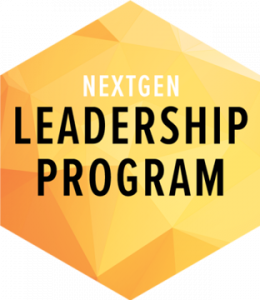Take a look around your office. Can you identify the introverts and the extroverts? Do you know if you are an introvert or an extrovert? While these questions may seem not seem immediately relevant at the office, the fact is that knowing whether a colleague is more introverted or extroverted can make it easier to effectively work with them.
The first step to learning how to work with different personality types is knowing how to identify what tendencies a coworker has. While there’s no such thing as a pure introvert or extrovert, those with introverted personalities recharge through alone time and tend to lose energy from being around a lot of people for prolonged periods of time. On the other hand, extroverted individuals gain energy from people and lose energy when they spend too much time alone.
How does this translate to an office setting? You’ll probably find that your introverted coworkers are not big on small talk, spend a lot of time working in solitude and give few but insightful comments in bigger meetings. Extroverts are more likely to chat up colleagues in the kitchen, make rounds around the office, and be vocal in social settings. However, these traits can be fluid—it’s important to understand where your colleagues are coming from based on their personality type but be careful not to box your coworkers into one end of the personality spectrum.
Here are a few tips that can help you better appreciate, manage, and work with each personality type:
How to Appreciate Each Personality Type:
Introverts: A common misperception about introverts is that introverts don’t need praise in the workplace. However, introverts are just as likely to want praise of their work – but may want it to take place in private. This will allow them to feel more comfortable and that their contributions are genuinely appreciated.
Extroverts: Conversely, extroverts are very social individuals and are more likely to respond well to being praised for their work in front of other coworkers. Don’t be afraid to openly appreciate the work your extroverted employees are doing, but make sure you are giving your introverted employees equal amounts of private praise when it is deserved to avoid it looking like you are playing favorites.
How to Manage Each Personality Type:
Introverts: Allow introverts to ease into the work day and have quiet time when they need it. This will allow them to be the most productive. Additionally, understand that introverts may be more likely to want to work on one project at a time or chunk out their day so they spend a set amount of time dedicated to one task. Try accommodating this the best you can when assigning projects and tasks.
Extroverts: When extroverts walk into the office, they are likely to start their day catching up with coworkers before the dive into work. As long as they’re getting their assignments done, allowing extroverts to spend time having small talk conversations can allow them to start their day on the right. Additionally, if you have an office full of extroverts, try planning meetings and brainstorms to energize them and get ideas out there.
This article from the Harvard Business Review gives some more insight on how managers can better lead the two personality types.
How to Work with Each Personality Type:
Introverts: Perhaps the biggest tip for working with introverts is to listen—they don’t always speak up but when they do it is likely important and thought out, as they often put a lot of thought into what they are going to say before they say it. Additionally, accept the silence when an introvert isn’t talking. Most of the time, an introvert is not trying to be rude with their quietness; rather they simply just don’t have anything they feel they need to add to the conversation.
Extroverts: People with extroverted personalities tend to be high energy and enthusiastic about solving issues in the workplace and tackling projects. In order to work best with your extroverted coworkers, work in time to verbally bounce ideas off of each other about projects and assignments instead of just emailing back and forth. This allows them to feel heard and energized while accomplishing the task at hand.
Want more career development resources? The NextGen Leadership Development Program could be for you. Learn more about what you can get out of the program here.
